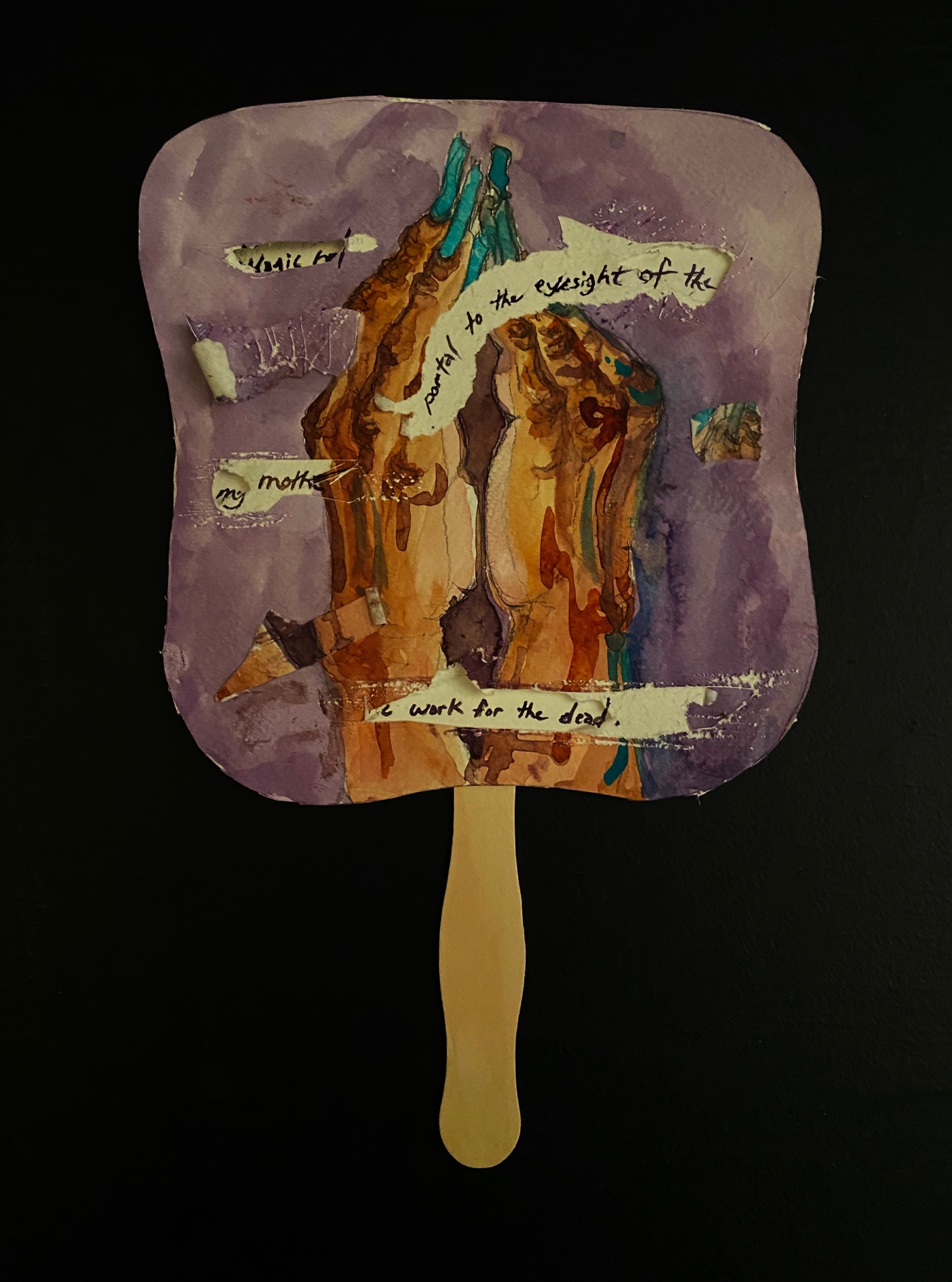I’m on a personal mission, like many young Black folks coming out of Mississippi, of changing the reputation of my home state and highlighting the culture that people forget or deny when it comes to Mississippi. Being located in Chicago now, where I recently found out my father was born, I was moved to reference the Great Migration, albeit subtly, in my current project. Along with that history, I am also writing fictional stories and poetry that center Black, queer, southern, and rural individuals with some relationship to the church. Some of these identifiers become a bit loose in interpretation as my story is set roughly three hundred years from now and on a different planet, but the essence of these remains.
I am drawn to the genre of sci-fi because of the simple fact that engaging with the genre, in actuality, is engaging with the societal problems and questions of today. This project, Church Mother Lemon Letters, started with a question I asked myself: “What could it have been like to have grown up with gay and lesbian leaders in the church – to have had two ‘church mothers,’ who I could go to for advice and comfort, married to one another?” My own identifiers, to most people, may seem an impossible collage, most significantly, my relationship to queerness and faith, all while being Black and embracing the South – the Black South. I believe this “impossible collage” is echoed in the form of my work.
The words beg to be heard as they sit on the page. Being inspired by the spoken word artists of the 90’s – people featured on Def Poetry Jam – as well as what’s referred to as “call and response,” – you will find this in Black churches as well as queer spaces as a way for a performer or speaker to engage the audience and vice versa – I shape the words on the page so that they might demand to be heard while also doing something entirely separate as a visual image of the use of language.

